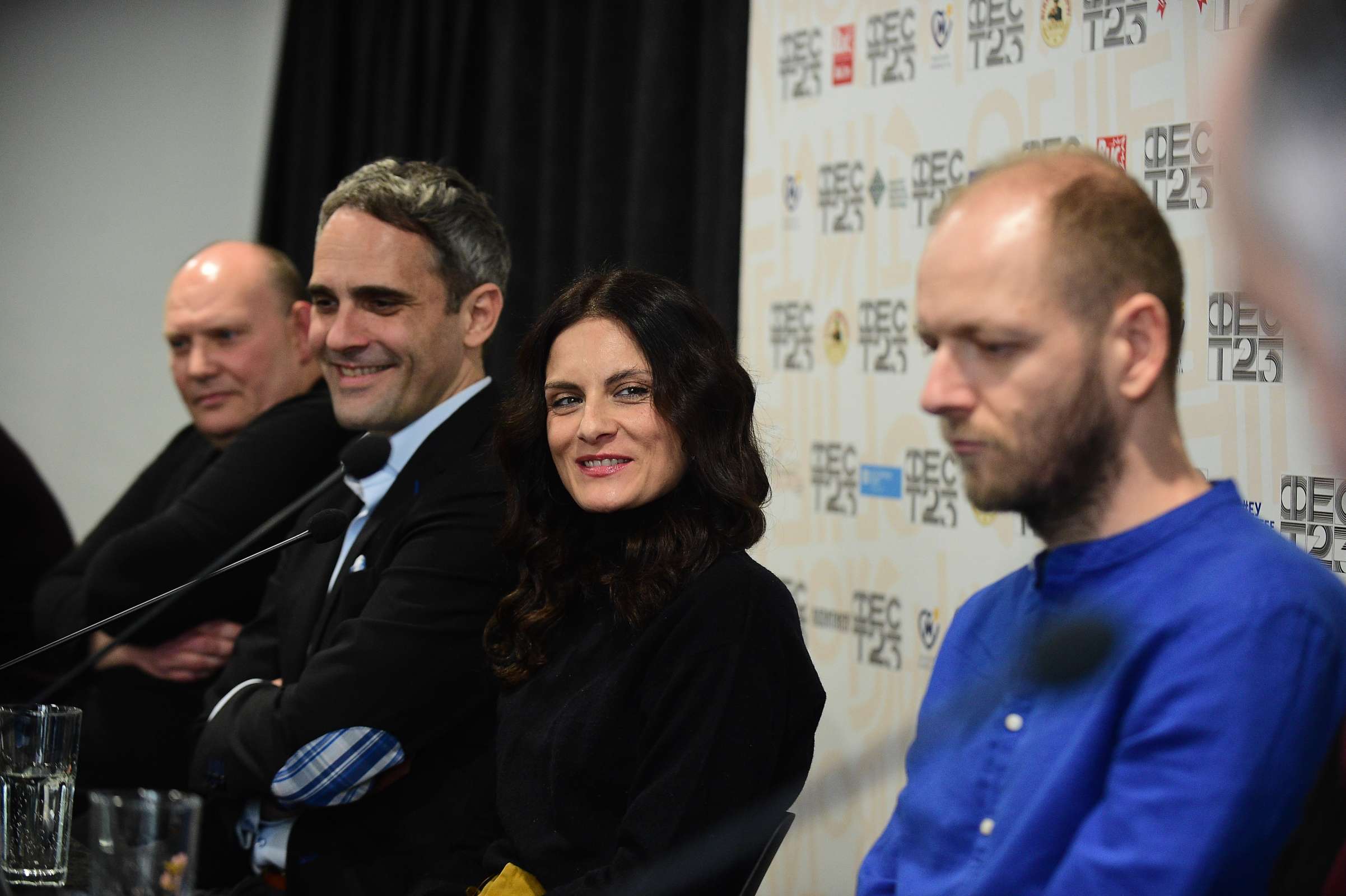Ognjen Petković was an assistant director to Mladomir Puriša Đorđević on the film ‘Mouth Full of Earth’, based on the novel of the same name by Branimir Šćepanović, which closes the 51st FEST.
Petković says that he had the privilege of being the closest collaborator of the great Serbian director on this project.
‘Although I had met Puriša earlier at KPGT theatre, it all started in the apartment of our costume designer Branka Kulijer. But before that, Ljubiša Ristić called me and asked if I wanted to help Puriša make a film, and it was both an honor and a privilege. We started with preparations that lasted from March, April last year with the idea that the shooting would start in June or July, so that Puriša, since he is going to the Film Center Serbia (FCS) competition with a writer like Brana Šćepanović, has a script and a shooting script done. In the meantime, all that kept changing, we were thinking about locations, about casting. Of course, it was both an honor and a privilege and I think a remarkable film was created', believes Petković and adds:
‘Technology and technique advance at an incredible speed and this is especially visible in the film, and of course we had to instruct Puriša in certain technical and technological things. At the same time, he had extraordinary ideas and his thinking is incredibly fresh. He had an amazing intuition, and that was crucial to make everything he made in life. Puriša is a man who was always working, writing. He wrote on a typewriter, he did not use computers. It means he devoted time to certain thoughts. Sometimes those were instructions, sometimes letters to colleagues in which he shared his opinion and thoughts.’
Petković first finished drama school, then got a doctorate in audiovisual arts and started working in film.
‘I have made short films so far, there is a documentary that I care about, even though FCS ignores me, but as I once said, they never gave money to Živko Nikolić either. I am finishing that documentary after all’, he said.
Regarding whether acting is the primary profession or whether directing has taken over that primacy, the director says:
‘It all depends on what intentions you get into acting with, whether it is some inner need to shape the world as you see it or whether you want to expose yourself. It is the same with directing, with film: do you want to make money from it, do you want to have fame or do you want to deal with film the way it should be done. If a film is made the way it should be made, it is a sacrifice. If you did not die and be reborn making a film, the film will not work. If you do not bleed, you do not go through agony, you do not go through a rollercoaster emotionally and physically, the film cannot work.’
According to him, the documentary that he is finishing will stir up passions because the topic is serious.
‘It is about the abuse of antibiotics and the way they are present in everyday life and the story that started with deaf people. Working with these people, I came across information that a large number of children in the seventies and eighties had destroyed their cranial nerve after receiving streptomycin or gentamycin on an outpatient basis or some other ototoxic antibiotic intramuscularly, after receiving injections. But the most terrible thing is that these antibiotics are still being used today, and not only are they being used, but they are being misused. Peppers are sprayed with them, apples are sprayed’, he pointed out.
When asked if the film was in the style of Michael Moore, he says:
‘Serbia needs Michael Moore, even if, only in this case, that role fell to me.’
Petković is preparing two more films, one is ‘Katar’ (Qatar) and the other is ‘Povratak’ (The return).
‘Katar’ is a chamber piece about three friends who want to go to Qatar as manual laborers and solve their life problems that way. They come from Bosnia and Croatia and are stationed in an illegal tavern in Novi Sad. On the eve of the political elections, various intrigues take place between them. We see what the generations are growing up on, Qatar is not a geographical determinant but a diagnosis of society. I think that this film, although it is affirmed as a theatrical performance, is needed by this society. ‘Povratak’ is a story that takes place in Vukovar, where I was born, and talks about a family that was torn apart during the war. The original name was ‘Vraćam se odmah... Good’ (I’ll be right back… Good) according to a graffiti there and it talks about a son who after the death of his mother returns to see his sister and father who has a new family...’, he explained.
In the meantime, until the realization of the films takes place, he appears in plays.
‘I have plays in the regular repertoire of KPGT, ‘The Use of Man’ (Upotreba čoveka) with Boris Lješević. I am in the period of my life and experience when I want to do projects that are worth doing both in the theatre and on film. I can do a lot of things in construction as well, so I am not afraid for my survival’, concludes Petković with a smile.








